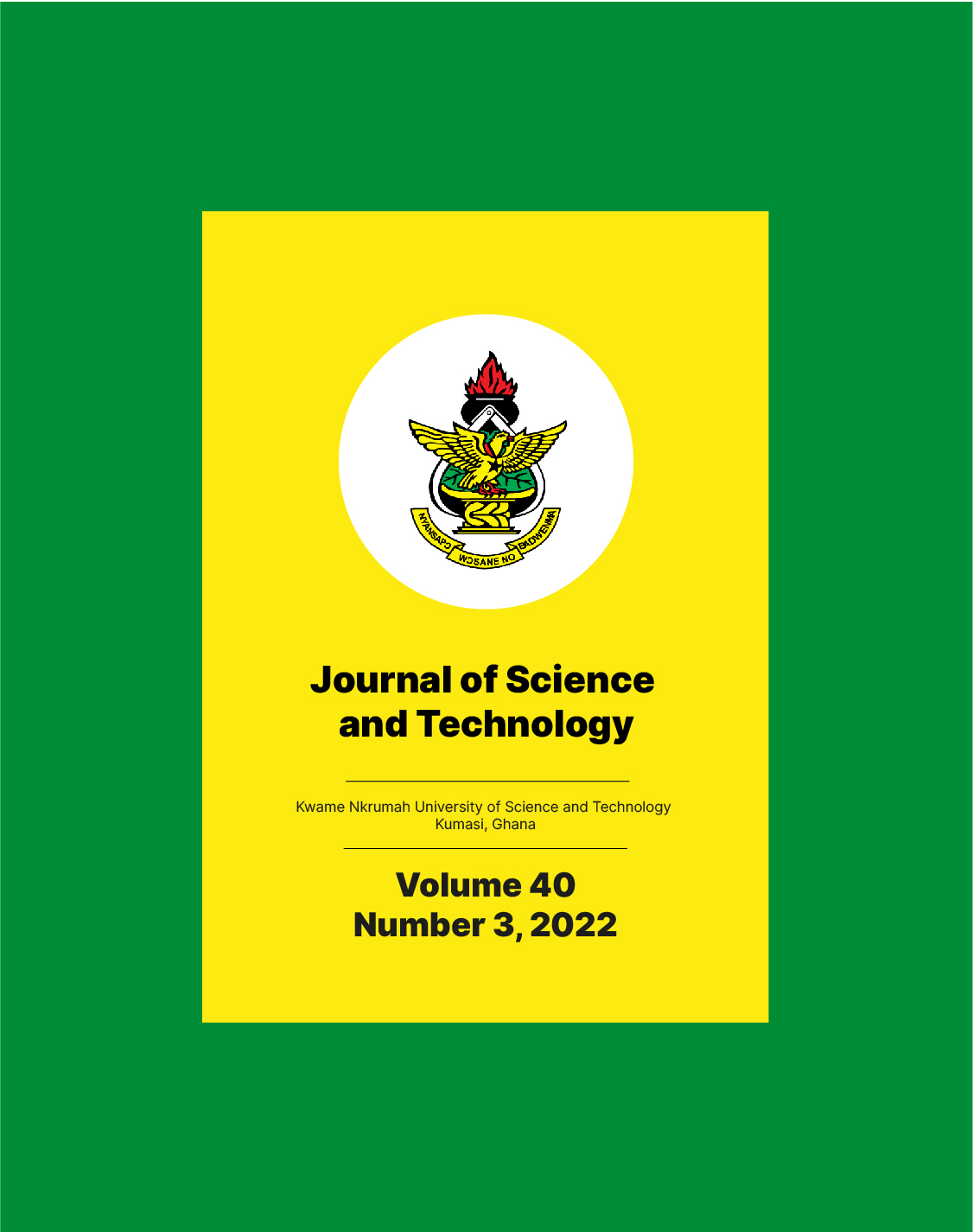Main Article Content
An Evaluation of Groundwater Potential for Sustainable Water Supply on KNUST Campus, Ghana
Abstract
Many boreholes have been drilled on KNUST campus to aid meet water supply demands due to rising population and inadequate water supply from Ghana Water Company Limited (GWCL). Unfortunately, these boreholes are managed individually by units without any
institutional scheme leading to water shortages at some units whilst other boreholes are underutilized. Therefore, this study seeks to assess the groundwater potential from the boreholes against the water demands on campus towards sustainable efficient water supply.
The methodology employed involved mapping of all the campus boreholes, acquisition of available data on the boreholes, carrying out pumping test on selected boreholes to validate their yields and water quality suitability for drinking, and administering of questionnaires for water demand estimation. The study results indicate that there are 112 functional boreholes on campus; these boreholes generally have suitable drinking water quality except in few areas where the levels of colour, turbidity, pH, iron, and total coliform are outside the recommended WHO guideline values. The estimated groundwater volume that can be abstracted from the boreholes is 8.04 million l/day when pumped for 16 hours in a day. This is far higher than the current estimated water demand of 4.60 million l/day and the projected future water demand of 7.95 million l/day for the year 2029. Thus, the current available boreholes on campus can be relied on solely for sustainable water supply for the next ten years if managed together as a system.






